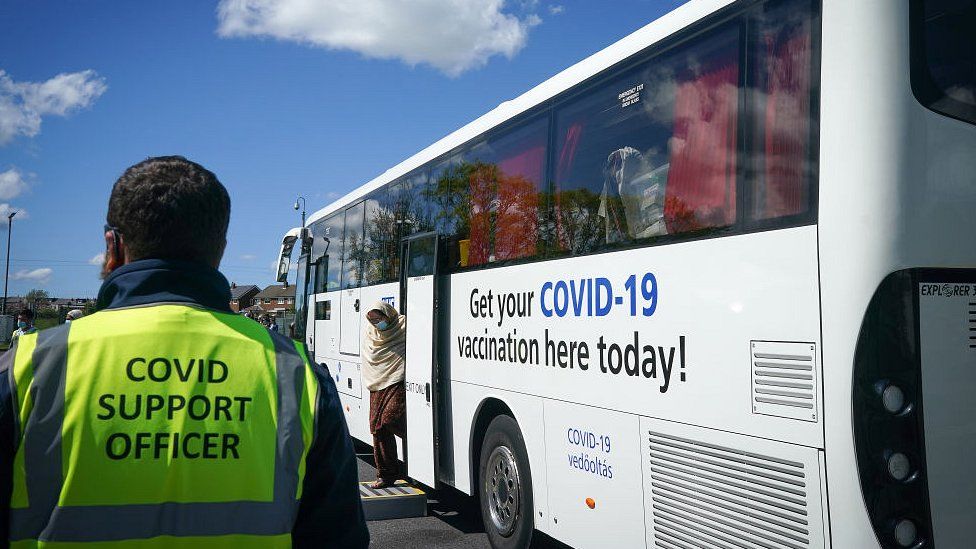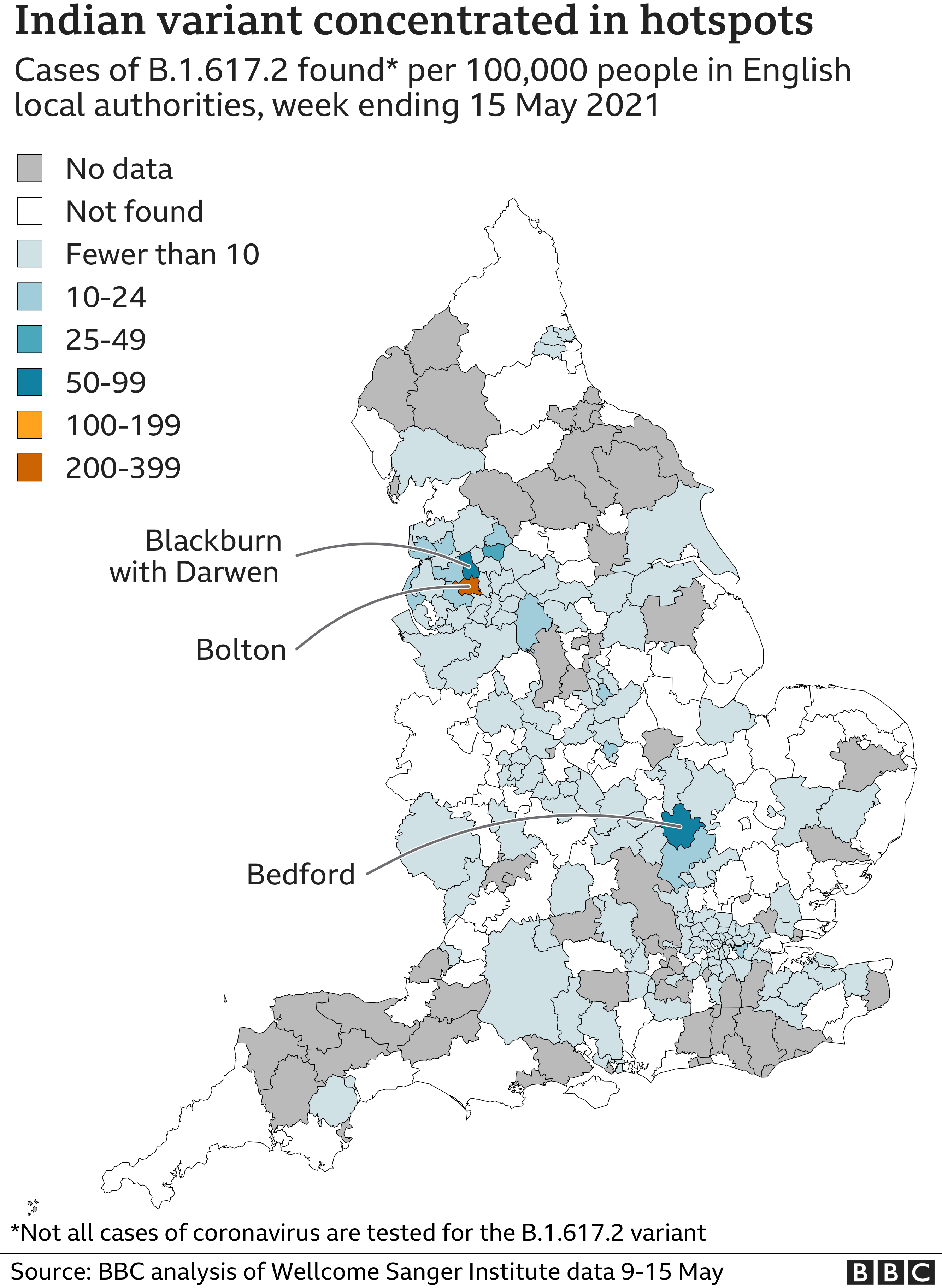Covid Indian variant: Where is it, how does it spread and is it more infectious?
By Rachel Schraer
Health reporter
Many new cases of Covid in parts of the UK are linked to what's known as the Indian variant.
This version - or mutation - of the Covid virus was first spotted in India last October and has since spread to a number of countries.
What is the Indian variant?
Viruses mutate all the time. Most variants are insignificant, but some can make a virus more contagious.
In the UK it's thought the Indian variant - or rather a particular type of it known as B.1.617.2 - could be spreading more quickly than the Kent variant, which was responsible for the surge in cases over the winter.
Where is it in the UK?
There have been more than 5,000 cases of the B.1.617.2 variant in England, 383 in Scotland, 62 in Wales and 15 in Northern Ireland.
In some areas of England - including in Bolton, Blackburn, and Sefton in North-West England and Bedford, Chelmsford and Canterbury in the South-East - it is causing the majority of infections.
In London it makes up the lion's share of cases in Croydon, Hounslow and Hillingdon.
A surge in Glasgow may also be driven by the variant.
How many cases have been identified?
In the worst-hit areas, in the two weeks to 15 May:
- 488 cases identified in Bolton, compared with 50 cases of the Kent variant
- 132 cases in Blackburn (vs 12)
- 100 in Bedford (vs 20)
- 72 in Sefton (vs 15)
However, just because it's the most common strain in some places doesn't mean there's lots of it about.
In Croydon, for example, the variant accounts for 87% of the cases which were analysed for variants. But this amounts to only 14 individual infections, out of over 100 confirmed coronavirus cases.
In West Oxfordshire it was responsible for 100% of the authority's four Covid cases analysed.
Not all cases are analysed, but a higher proportion are in those areas with lots of the Indian variant, potentially skewing the figures.
While the variant is driving an increase in cases in Bolton, in pockets of London it appears to just be replacing the Kent variant rather than leading to more cases overall.
How is it spreading?
In parts of the country with very few cases, such as Yorkshire and south-west England, the majority of infections have been confined to people returning from India.
But in North-West England, which is most affected, only 7.5% of cases were in people who had travelled. This means the virus has spread further into the community.
Is it easier to catch?
It does appear to spread more easily than the Kent variant (B.1.1.7).
Transmission rates for the Indian strain were roughly 50% higher than for the Kent version of the virus in April. Just over 12% of contacts of people with the Indian variant went on to develop coronavirus, compared with 8% of those who had the Kent variant.
But some of that could be the behaviour of humans, rather than the behaviour of the virus.
When a variant spreads faster than other types in circulation, it could be driven by the strain being more infectious, by differences in how close people get to their contacts, or by different vaccination rates.
For instance, it's been pointed out some of the worst-affected areas have very low proportions of residents who are working from home.
Will it stop the easing of lockdown?
Despite fears over the Indian variant, most of the UK went ahead with easing restrictions on 17 May.
However, the government has issued new advice for people in eight areas of England with high numbers of cases
People have been told to avoid travelling in and out of Kirklees, Bedford, Blackburn with Darwen, Bolton, Burnley, Leicester, Hounslow and North Tyneside.
In addition, residents of these areas have been told to meet people outside where possible, maintain social distancing of 2m (6ft) from people not in their household and work from home if they can.
It is not clear whether the next stage of easing in England will happen on 21 June, as was set out in the government's roadmap.
Will other countries stop people going on holiday because the UK has it?
Many countries already have bans on people from the UK and elsewhere entering.
But we don't yet know whether others will follow suit specifically in response to the variant from India.


No hay comentarios:
Publicar un comentario